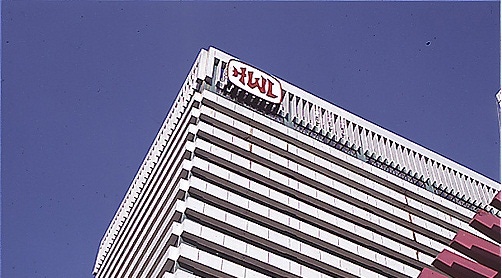Following confirmation form both Hutchison Whampoa and Telefónica the two indeed are in official talks over the sale of Telefónica’s O2 to 3’s owner Hutchison, industry analysts have been quick to offer their views on how this proposed bid would affect the UK mobile market if approved. It seems it is a thorny issue.
January 23, 2015

Following confirmation from both Hutchison Whampoa and Telefónica the two indeed are in official talks over the sale of Telefónica’s O2 to 3’s owner Hutchison, industry analysts have been quick to offer their views on how this proposed bid would affect the UK mobile market if approved. It seems it is a thorny issue.
“If approved, the deal would transform the UK mobile market,” Kester Mann, Analyst at CCS Insight, said. “It would create a new leader with over 30 million customers and a market share of 41%. It would also relegate Vodafone to last place in its home market.”
Since BT announced its plans to acquire the country’s current biggest operator EE, the UK telecom market has been stirring. Operators are re-evaluating their position, and with both 3 and O2 as pure mobile operators in a market increasingly moving towards multiplay offerings, it makes sense they would seek security through a merger.
“The agreement is a win-win for both companies which were looking increasingly vulnerable as pure-play mobile operators in a market rapidly transitioning towards multi-play,” Mann said.
But as neither 3 nor O2 have any fixed-line assets, Hutchison would need to decide whether it wants to continue with the pure mobile strategy in the UK. The other option would be to either buy wholesale access to fixed networks or make a further acquisition, such as TalkTalk.
“If it decides to pursue a multi-play strategy, competing directly with the likes of BT, Vodafone and Virgin Media, it could look to either wholesale access to fixed-line networks or consider making an additional acquisition such as TalkTalk,” Mann said. “Alternatively, the new entity could look to offer a compelling mobile-only proposition targeted towards customers that do not wish to buy all their telecoms services from a single provider.”
Perhaps the biggest hurdle in successfully completing the O2 acquisition will be getting Ofcom on board. The UK regulator has been keen to maintain a mobile market of four operators, and this purchase would reduce the number to three. However, the final call on the matter would be made by the European competition authority, and given their recent track record on similar deals by Hutchison in countries such as Austria and Ireland it could well allow the merger.
“Hutchison Whampoa has certainly increased its focus on the European telecoms market over the last couple of years, very much trying to scale up as a more significant player,” Phil Kendall, Analyst at Strategy Analytics said.
“This would obviously be the biggest move after the acquisitions in Austria and Ireland and, ignoring competition concerns, it is a sensible one in terms of the scale it brings. Both O2 and 3 have reasonable, but not spectacular, spectrum holdings and the longer term picture of a combined 4G network with good growth opportunity is quite compelling. 3’s brand is still weaker in the UK in terms of perceived network quality (perhaps unfairly) and this would go a long way to solving that problem.”
But some have also expressed reservations towards the deal, saying it would go against the parameters previously set by Ofcom. Ernest Doku, telecoms expert at mobile comparison site uSwicth.com said: “The UK’s 4G auction was on the condition there would be four major networks and this deal could mean there will only be three.
“We must wait to see what the competition authorities in Brussels make of the merger but the EU has approved similar deals in the past. The battle lines for the future of the mobile market are certainly being drawn with these acquisition talks.”
Kendall said: “There are obviously precedents for consolidation from four to three operators in Europe – Hutchison played its part in that in Austria and Ireland, while the O2/E-Plus deal in Germany was quite a significant regulatory statement of consent.”
Although according to Kendall, a blocking of the deal from the EU regulator would seem like a backwards move, he admitted the deal may not be favourable to consumers. “If we are trying to move towards more coherent pan-EU approaches to telco regulation it would look very backwards to block this deal,” he said. “But at the same time, you look at Austria and prices have been steadily increasing since Hutchison acquired Orange- things were stable for a couple of quarters but, since late 2013, prices have crept up at quite a rate.”
Doku thinks the current trend towards more multiplay offerings would still ensure the UK market remained competitive. “The UK has a reputation as one of the most cut-throat mobile markets in the world, and the move towards quad-play- where phone, broadband, TV and mobile services come from a single supplier- enabled by potential mega mergers like EE and BT, should keep competition fierce in the coming months,” he said.
Whether the deal would make prices rise or not, we can probably trust the acquisition won’t be approved without some regulatory strings attached. One possible concession could be that Hutchison would be forced to open up its network to virtual operators.
This, according to Mann, could potentially offer an opportunity to Sky to tap into the mobile market. ”Were Sky to [buy] wholesale mobile access from the combined 3 and O2, it could offer compelling bundles of fixed-line, mobile and TV services in competition with BT and Vodafone,” he said “Other companies such as Tesco and TalkTalk could also benefit from wholesale mobile access.”
3 currently has a network sharing deal with EE, operated by the two telcos’ joint-venture MBNL. If the O2 acquisition went through, the existence of MBNL might come into question. “If it [the acquisition] gets through, we are likely to see the usual suggested remedies about good wholesale access terms for MVNOs and it will be interesting to see Ofcom’s take on what should happen with MBNL, and whether that joint-venture would need to unravel,” Kendall said.
It will be interesting to see whether Hutchison and Telefónica can come to an agreement. The latter seems keen to exit the UK market and divesting O2 would also mean it can better focus on its key markets of Spain, Germany and Brazil. It also remains to be seen what Ofcom’s response will be, but with BT’s bid for EE in motion as well, it seems likely the UK telecoms sector is on the cusp of major change.
About the Author(s)
You May Also Like








.png?width=300&auto=webp&quality=80&disable=upscale)


_1.jpg?width=300&auto=webp&quality=80&disable=upscale)


.png?width=800&auto=webp&quality=80&disable=upscale)